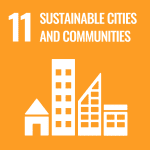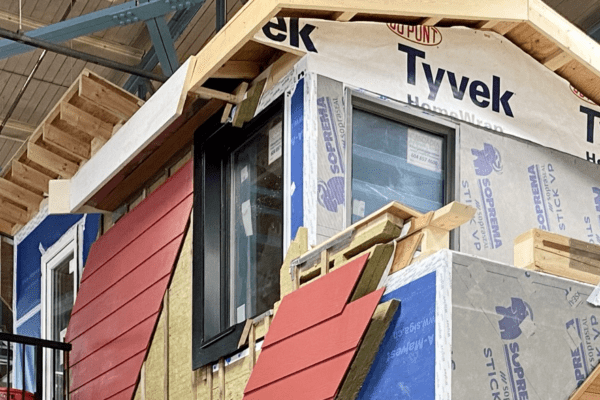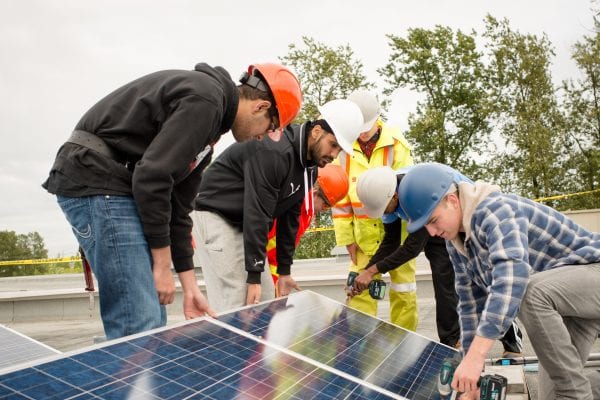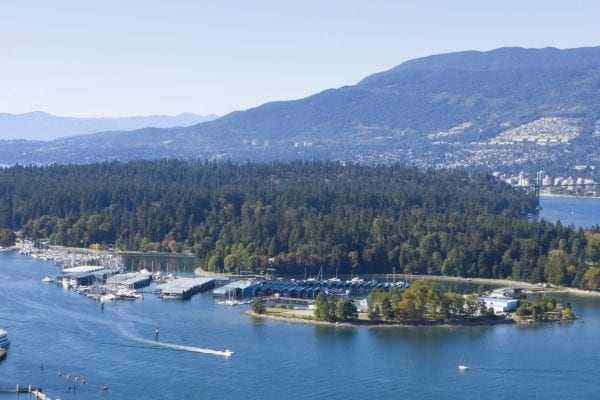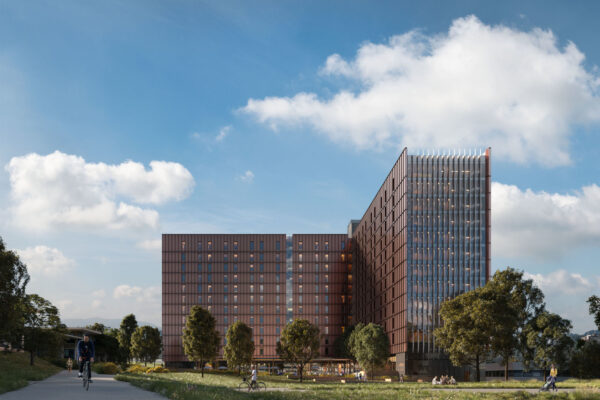
Post-secondary institutions, in general, are positioned well to advance efforts to address sustainability challenges through education, research, and translation to practice across their campuses as microcosms of society. In British Columbia, contributions to sustainability are part of the government mandate to the post-secondary education sector, which specifically requests that institutions align their operations with provincial climate strategy objectives around greenhouse gas reduction, renewable energy, and supporting technological innovation.
Our leadership team is unequivocal in its pursuit of sustainability. We recognize that inequitable resource consumption is at the heart of climate change and is an urgent global challenge. Although climate action and adaptation will remain at the forefront of our academic, operational, and partnership efforts, we will also strive to uncover the deeper systemic causes and to address other sustainability challenges. Through shaping the knowledge and actions of our students and partners in the workplace, we aim to inspire and mobilize change across industry and society, underpinned by best practices across our campuses.
Education & Research
The BCIT Centre for Ecocities, in collaboration with UN-Habitat delivered the first international Climate Changemakers Youth Leadership Training on August 12th, 2021. Youth participants joined from Canada, United States, India, Iceland, Mozambique, Venezuela and beyond.
The workshop was an opportunity to engage youth and help them network with each other on a global scale to discuss their ideas and work together so they can help their communities. One participant remarked, “the [problem] is that we think that we live in an unlimited resourced world, when we are surpassing the biocapacity, the biophysical limits of the planet.”
When asked what kind of change they aspire to affect at the height of their activism, many participants shared their ideal vision of the future: ending world hunger, cleaning up all the pollution and waste from the world, feel reassured kids have a real chance at enjoying nature, end inequality, and ensuring that a top priority of every person is bettering the environment, and creating a world that all future generations can enjoy.
“Having diversity of voices across age groups is needed. Youth have wonderful perspectives we need now, more than ever,” says Christina Olsen, Centre for Ecocities Manager, “we want to support youth leadership on climate action in whatever way we can.”
The BCIT Centre for Ecocities is spearheading new innovations in greenhouse gas (GHG) emissions planning and management and ecological footprinting. Using the ecoCity Footprint Tool, created by Dr. Jennie Moore, the Centre is helping local governments assess and act on their ‘consumption-based emissions’ and ecological footprints. These two metrics help them understand their fair share of the planet’s resources, and associated GHG emissions reductions that are needed to stay within the Earth’s carrying capacity. Read more about the Municipal Pilots at SDG 11: Sustainable Cities and Communities.
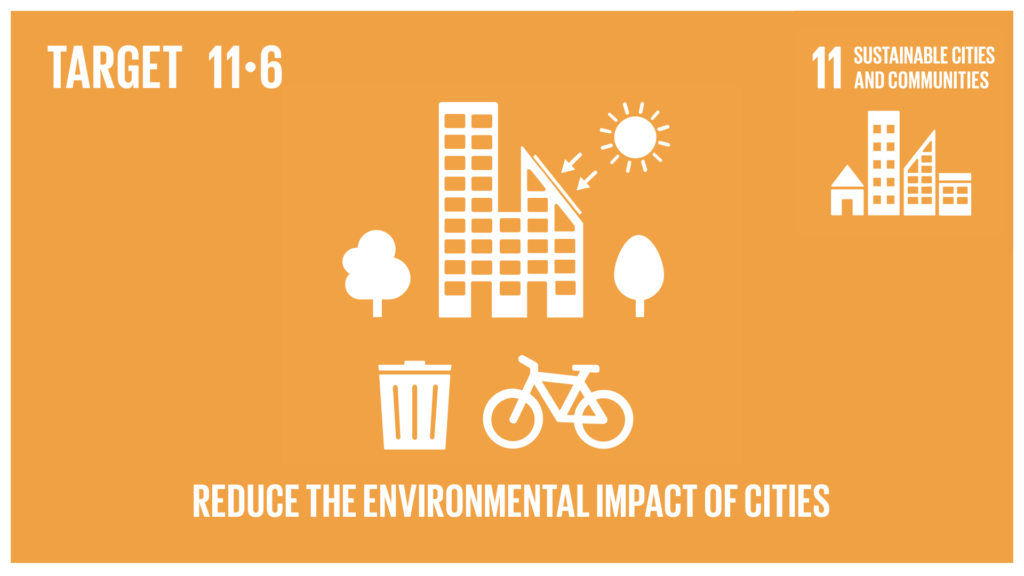
The Zero Energy/Emissions Buildings Learning Centre (ZEBLC) was launched in 2018 to support the construction industry with transitioning to the new BC Energy Step Code and new City of Vancouver Zero Emissions Building bylaws. The first of its kind in Canada, the ZEBLC was developed to provide hands-on training in zero energy buildings using an envelope-first approach. ZEBLC also launched an interactive Zero Energy Building exhibit in 2019 that visited various locations in Metropolitan Vancouver throughout 2022.
Meet Alex Hebert, Manager ZEBLC
In 2021, ZEBLC received the Inspired Educator Award at the 2021 CAGBC Awards.
Related SDGs
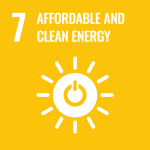
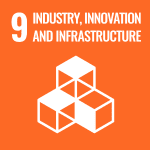
Dr. Eric Saczuk is the Chair of BCIT’s School of Construction and Environment Research Committee, and is an Instructor for the Diploma in Geomatic Engineering Technology. Outside of this, Eric’s travels have allowed him to pursue research that contributes to understanding climate change and its impacts.
After an unexpected avalanche in Norway’s Arctic Svalbard, it was clear that the incident was a direct result of climate change and rising temperatures. While working with an organization called Hearts in the Ice (HITI), a platform centered around building conversations on climate change, Eric was able to provide expertise and training to this group through the use of drones to capture spatial data. The data is used to be with various Hearts in the Ice research partners, including BCIT, for conservation efforts.
“Drones can be valuable tools for studying climate change. In the field of geomatics, drones are mostly used to capture construction data but it’s still a relatively new tool to use in conservation efforts”. – Dr. Eric Saczuk
Check out the BCIT News article for more information.
Embedded in the BCIT Motive Power Centre of Excellence on Annacis Island, in Delta, BC, the Emission Reduction and Research Test Hub (ERRTH) is truly one of its kind. This research facility provides critical data needed to develop new technologies that reduce engine emissions from vehicles.
The transportation sector is a major contributor to greenhouse gas emissions. In 2018, the transportation sector alone was the second largest source of greenhouse gas emissions in Canada, accounting for 25% of the nationals total emissions. The research conducted at EERTH helps test solutions for a cleaner environment, and includes many forms of transportation such as cars, boats, and even trains. EERTH’s research expands outside of emissions testing, to product development and the improvement of air quality.
Related SDG:

Engagement
Factor Four is a project put forward by the BCIT School of Construction and Environment, to explore how far our existing technologies can go in reducing BCIT’s energy and material consumption fourfold (75%). Through the involvement of 7 Burnaby campus buildings, this goal included:
- investing in projects that increase energy efficiency and produce energy from renewable sources
- reducing materials consumption by changing curriculum delivery methods and diverting waste away from landfills, and
- leading restoration projects intended to improve the ecological health of the area.
By use of these methods, BCIT was able to reduce its energy use by 50% between 2009 and 2016 from energy efficiency and energy demand management initiatives. In the process, 12 educational programs were included, involving over 250 students in the solution process.
The goal is now to take this same energy reduction approach at all BCIT campuses.
Check out the Factor Four area next time you are on the Burnaby campus by following the self-guided tour.
The Emerging Economy Task Force (EETF) examined the current state of B.C.’s economy with a view to providing analysis and advice on emerging trends, including new technologies and innovations that will change the nature of business and society over the next 25 years. They explored options for cutting-edge government policies in response to these changes, to ensure B.C. stays at the forefront of emerging economic developments.
The EETF has made 25 recommendations across 5 strategic priorities that recognize and build on B.C.’s existing strengths and capacity in order to enhance well-being, sustainability and shared economic prosperity for the province and its residents. They recognize that addressing climate change is essential to the future economic success of British Columbia. One of key priorities is to leverage B.C.’s green economy: “The emergence of the green and circular economy, one that is low-carbon, resource efficient and socially inclusive, presents opportunities for B.C. given its existing strengths. Investments in green infrastructure and climate adaptation planning will ensure B.C.’s economy remains resilient.”
National Sweater Day is an annual World Wildlife Fund Canada event that is held every February to encourage actions that individuals can take to reduce climate impact and save energy. BCIT has been a proud participant for over a decade and events were back in person in 2023:
- Burnaby campus held two live events:
 The community was encouraged to wear a sweater, bring their own mug, and join the Green Team in the Great Hall for a coffee, tea, or hot chocolate. Tips on saving energy and reducing personal greenhouse gas emissions were provided. Individuals were encouraged to write a personal pledge to save energy and to drop a ballot in the prize draw box.
The community was encouraged to wear a sweater, bring their own mug, and join the Green Team in the Great Hall for a coffee, tea, or hot chocolate. Tips on saving energy and reducing personal greenhouse gas emissions were provided. Individuals were encouraged to write a personal pledge to save energy and to drop a ballot in the prize draw box.- BCIT staff presented on actions they had taken to reduce their ecological footprints including discussions on how to do a heat pump retrofit in a Vancouver duplex, the role of the BCIT Energy Specialist, and urban off grid living.
- Librarians at the satellite campuses had displays providing information and take-home packs of hot chocolate and tea in their libraries.

Prize draws were held with entries accepted in-person at the events and virtually using the hashtag #BCITSweaterDay (pets welcome).
Administration & Operations
As an Institute, BCIT used approximately 84 million kWh of energy in 2017, and spent $5 million in energy and emission costs. To compare, that is the energy used by roughly 3,000 British Columbia households.
Since then, the Energy Team has made a commitment to reduce BCIT’s carbon footprint by one-third (33%) by the year 2023. To reach this goal, the BCIT Strategic Energy Management Plan was built, which outlines an approach as to how this goal can be achieved.
In 2017, it was found that 95% of BCIT’s greenhouse gas emissions came from campus buildings. Addressing energy management in infrastructure has since become a primary focus area for the Energy Team in terms of emissions reductions. Other than striving to improve building efficiency through retrofit projects and upgrades of aging equipment, the plan to reach this goal also includes moving to decarbonized energy sources, providing real-time monitoring of energy use, and supporting electric fleet vehicles and charging infrastructure at BCIT.
BCIT’s greenhouse gas emissions are annually reduced to net zero through verified offsets as per the British Columbia Greenhouse Gas Industrial Reporting and Control Act. For more information, check out the 2018 Carbon Neutral Action Report.
Wood shops at BCIT were heated using natural-gas-fired appliances – an emission heavy process. In turn, BCIT Carpentry and Joinery programs disposed of excess wood waste generated from lumber in their classes through the use of external waste haulers. It was from these gaps, that the Wood Waste-to-Energy project was born as a cost-effective and environmentally-friendly solution to energy generation on campus.
By repurposing the wood waste as fuel for a biomass boiler, energy is generated which provides space heating for the two program buildings. The project was inspired by BCIT Instructors, who allowed woodworking shops and studios in remote areas, many of them on First Nations reserves, to heat their buildings while relying less on polluting fossil fuel energy sources.
Each year, this project is projected to save approximately 4,800 GJ in natural gas consumption, and will reduce carbon dioxide equivalent emissions by 240 tonnes. The greenhouse gas emissions associated with transporting the wood waste for disposal are additionally avoided.

Services electric fleet vehicles.
The BCIT Energy Team is tasked with reducing Institute greenhouse gas (GHG) emissions by 33% by 2023. One GHG source of concern is the fuel used in fleet vehicles and equipment. BCIT provides fleet vehicles for use by students, staff, and faculty for Institute related activities and business. There is a strategy in place to reduce emissions from fleet vehicles by retiring fossil-fuel vehicles at their end of life and replacing them with electric equivalent zero emission vehicles as available. 61% of fleet vehicles are now electric.
Electric vehicle (EV) recharging stations are installed with all new construction projects. BCIT has invested heavily in installation of EV recharge stations in an effort to both promote a zero emission vehicle fleet and private vehicles, but also to support education in all aspects of this technology including EV vehicle maintenance, recharge station maintenance, as well as applied research initiatives in addition to other initiatives off-campus intended to support the electric vehicle industry.
Related SDG:
